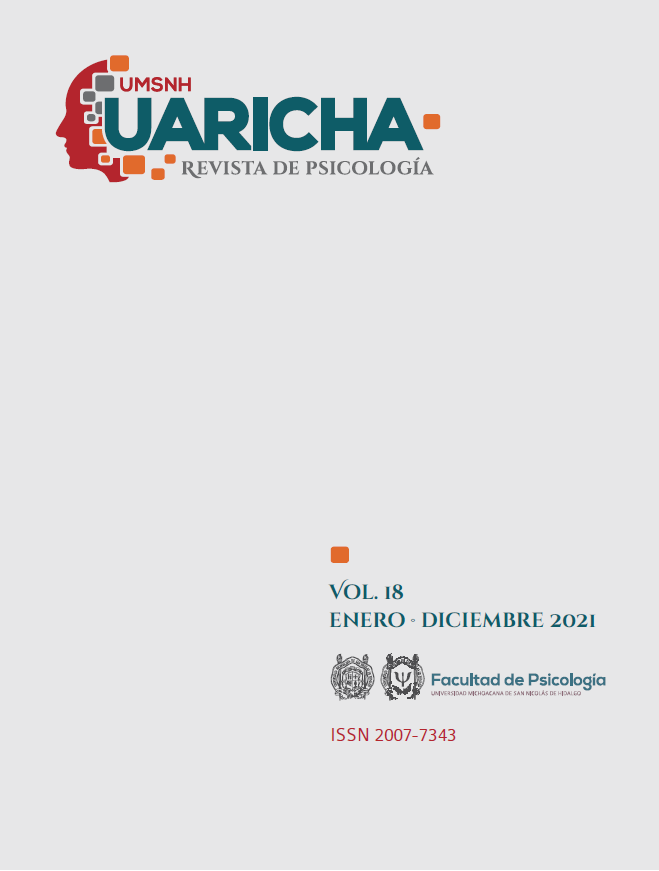Telepsicología en la pandemia Covid-19: Una revisión sistemática.
Contenido principal del artículo
Resumen
La enfermedad respiratoria COVID-19, ha causado manifestaciones que requieren atención psicológica. Debido a que la forma de transmisión del virus dificulta la intervención cara a cara, los servicios remotos son una opción en la búsqueda de estabilidad emocional durante la pandemia. El propósito de esta investigación es llevar a cabo una revisión sistemática de la evidencia científica del uso de la Telepsicología en contexto COVID-19, basado en el modelo PRISMA, por lo que se realizaron búsquedas avanzadas en Web of Science, PubMed, Scopus, Redalyc y Academic Google, utilizando descriptores de MeSH y diccionarios de sinónimos. Se incluyeron los estudios que utilizaban la Telepsicología para tratar pacientes durante la pandemia y se excluyeron aquellas que no describían de forma clara cómo era la intervención. Ocho estudios que cumplieron con los criterios de inclusión fueron seleccionados y analizados. Los resultados dan fe de la efectividad del uso de la Telepsicología en el tratamiento de la depresión, ansiedad y estrés en tiempos de pandemia, aunque aún hace falta obtener evidencia de su uso estandarizado, por lo que se refuerza la necesidad de elaborar protocolos de atención telepsicológica cada vez más especializados.
Detalles del artículo
Número
Sección

Esta obra está bajo una licencia internacional Creative Commons Atribución-NoComercial-SinDerivadas 4.0.
Los autores tienen el derecho de propiedad o copyright y ceden a Uaricha Revista de Psicología el derecho a publicar por primera vez el artículo, así como a divulgarlo y distribuirlo en los medios tecnológicamente disponibles y a través de repositorios.
Uaricha Revista de Psicología, es una publicación anual editada por la Facultad de Psicología de la Universidad Michoacana de San Nicolás de Hidalgo, Calle Francisco Villa No. 450, Col. Dr. Miguel Silva, Morelia, Michoacán, C. P. 58110. Teléfono (+52) 443 312 9909, ext. 149, www.revistauaricha.umich.mx, uaricha.publicaciones@umich.mx. Editora responsable: Dra. María Elena Rivera Heredia. Reserva de Derechos al Uso Exclusivo No. 04-2013-070413365500-203, e-ISSN: 2007-7343, otorgados por el Instituto Nacional del Derecho de Autor. Responsable de la última actualización de este Número, Centro de Cómputo de la Facultad de Psicología, Ing. Erick Vidar Alva Rangel.
Cómo citar
Referencias
Coronaboard (2021, 8 de febrero). COVID19 Dashboard.https://coronaboard.com/global/
Shadish, W. R., Cook, T. D., & Campbell, D. T. (2002). Experimental and quasi-experimental designs for generalized causal inference. Houghton: Mifflin and Company.
Taylor, S. (2019). The Psychology of Pandemics. UK: Cambridge Scholar.

